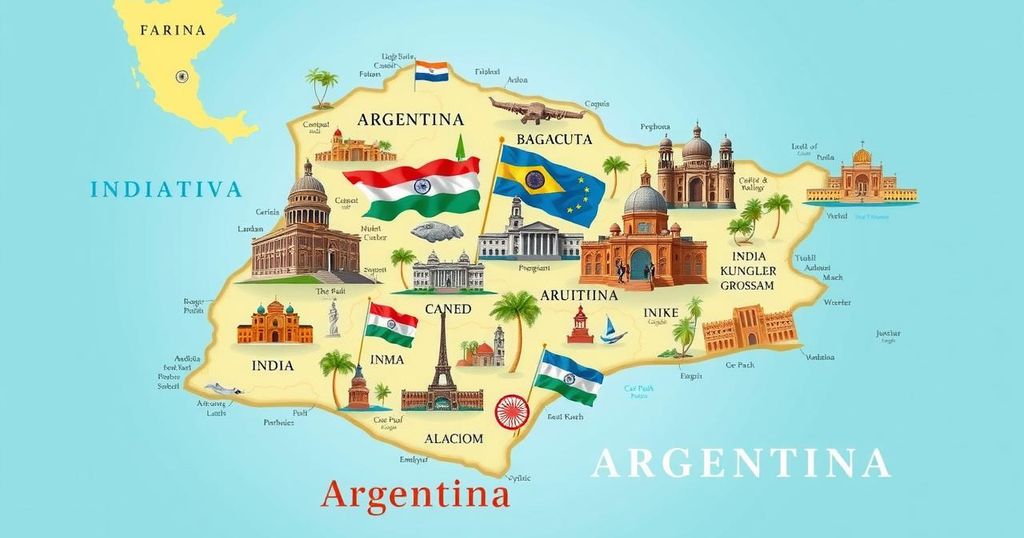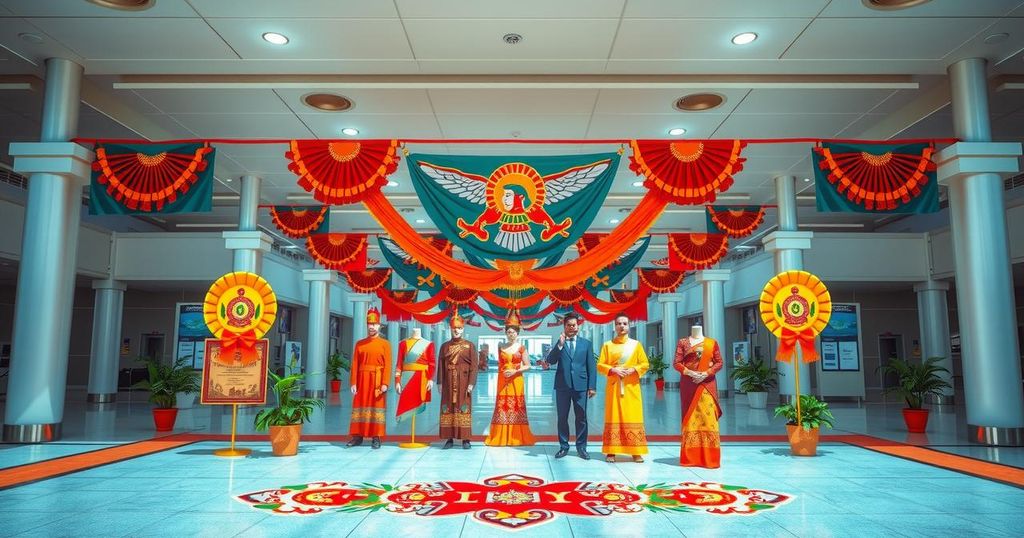Global news
ABCHIR, AFRICA, CIVIL WAR, CONFLICT RESOLUTION, HUMANITARIAN, HUMANITARIAN AID, KENYA, MOHAMED ABCHIR, PEACEBUILDING FUND, PEACEKEEPING, SOBAT RIVER, STEPHEN PAR KUOL, SUDAN, TAMAZUJ, UN PEACEBUILDING FUND, UNDP, UNICEF, UNITED NATIONS DEVELOPMENT PROGRAMME, WHITE NILE
Leila Ramsay
0 Comments
South Sudan Launches Two Major Peacebuilding Projects to Combat Violence
South Sudan has launched two major peacebuilding projects with the UNDP and UNICEF, funded by the UN Peacebuilding Fund and KOICA. The projects aim to reduce community violence, empower local communities, and enhance resilience, focusing on youth and women. Officials highlight the importance of community-centered approaches for sustainable peace.
The Government of South Sudan, in collaboration with the United Nations Development Programme (UNDP) and UNICEF, has initiated two significant peacebuilding projects aimed at mitigating community violence and enhancing resilience in conflict-affected regions. These initiatives are funded by the UN Peacebuilding Fund and the Korea International Cooperation Agency (KOICA) and seek to empower local communities, particularly youth and women, to engage in peace efforts actively.
At the launch event in Juba, Stephen Par Kuol, Minister of Peacebuilding, underscored the necessity of community-centered strategies for attaining lasting peace. He stated that the project is critical and timely, emphasizing, “We must go beyond violence reduction and aim to end community violence entirely.” Kuol noted that it is the responsibility of leaders to safeguard their communities effectively.
The first project, titled “Community Violence Reduction Partnerships with White Nile and Sobat River Communities,” focuses on enhancing security along the White Nile and Sobat River corridor. With a funding of USD 4 million, it will span 36 months and concentrate on reintegrating conflict-affected youth, improving livelihoods, and fostering social cohesion through trauma healing and psychosocial support.
The second initiative, “Peacebuilding and Preventing Violent Extremism in East Africa,” involves South Sudan, Kenya, and Somalia, with a budget of USD 4.8 million. It intends to bolster community resilience and social cohesion, especially among youth and women, and will be implemented in Eastern Equatoria, Warrap State, and Western Bahr el Ghazal.
Mohamed Abchir, UNDP South Sudan’s Resident Representative, stressed the significance of collaborative measures to tackle the underlying causes of violence. He remarked, “These projects reaffirm our collective commitment to addressing the root causes of violence.” Abchir also expressed gratitude to donors and partners for their steadfast support and stated the importance of enabling communities to build a peaceful future.
Pia Philip, undersecretary at the peacebuilding ministry, emphasized community involvement in the projects, noting, “This project aims to build resilience among young people, women, and organized forces.” He highlighted the importance of community engagement to achieve sustainable peace while addressing challenges posed by local checkpoints.
The projects will also work toward combating violent extremism through peace education, countering hate speech, and facilitating economic empowerment for youth and women. They will seek innovative solutions to conflict drivers and reinforce local mechanisms for conflict prevention, alongside providing skills training to enhance resilience among women and youth.
The Ministry of Peacebuilding reiterated its commitment to collaborating with civil society organizations and local communities for the effective execution of these projects. Minister Par emphasized, “Juba is not South Sudan. South Sudan is out there, where our people are.” He recognized the necessity to engage traditional leadership and communities in achieving project objectives.
These initiatives are poised to offer socio-economic prospects, trauma recovery, and reconciliation support, contributing to the self-reliance and resilience of communities. Their launch is timely as South Sudan grapples with ongoing issues of community violence and instability.
The Government of South Sudan, alongside UNDP and UNICEF, has launched two notable peacebuilding initiatives funded by international partners. These projects aim to reduce community violence and enhance resilience, particularly among vulnerable populations like youth and women. With a focus on community involvement and addressing root causes of violence, the initiatives present a critical step toward fostering sustainable peace and stability in the region.
Original Source: www.radiotamazuj.org




Post Comment